Leave Steve's liver alone
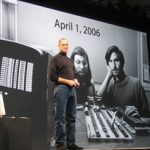
It's a question friends and family have been asking me ever since The Wall Street Journal reported last Saturday that Apple Chairman and CEO Steve Jobs had undergone a liver transplant two months ago: Should our health records be made public?
I admit I'm of two minds on the issue. On the one hand, Apple shareholders have the right to know how the company they essentially own plans to manage itself both today and in the future. They deserve enough information to make informed decisions about whether they wish to retain their ownership stake and how they wish to remain involved, as shareholders, in the evolution of the company. It's a fundamental pillar of our economic system that publicly traded companies provide enough transparency to keep shareholders informed -- not to mention senior leaders honest.
The truth, the whole truth, and nothing but the truth (are three different things)

This episode of Recovery is brought to you by axial tilt: It's the reason for the season. (What? It's just as funny at Solstice as it is around Christmas, dammit.)
Having lately increased the amount of time I spend around small children, I have gotten a refresher course in lying. No judgment implied, but little kids are still learning how the reality thing works, and if they wish something to be so, most will at least take a shot at saying it already is. (I'm sure it's not fair to blame Walt Disney for all that wish-upon-a-star, wish-and-Tinkerbell-lives stuff, but if those people could slap a trademark on the performative utterance, they'd been richer than... um, Disney. Oops.)
Twitter grows up: Lessons from the Iran experience
Solid Oak Software and the Chinese deserve each other

Of all the filtering software makers in all the world, it's interesting and appropriate that Chinese software developers chose Solid Oak Software's CyberSitter to (allegedly) pirate -- not because it's the best out there, but because it's historically hewed the closest to enforcing the kind of heavy-handed control that Beijing likes.
Santa Barbara-based Solid Oak set up a hue and cry over the weekend, saying that China's "Green Dam Youth Escort" filtering software bears unmistakable proof of piracy. Examination of the software and its server logs seems to indicate the company is correct -- aside from the long list of sites to be filtered, there are bits of familiar code and even calls back to Solid Oak's servers. (Chinese officials have flatly denied that any intellectual property was stolen, and a subsequent update to the package eliminated many of the callbacks and other suspect code.)
The netbook fraud: Truth, lies, and consequences in the PC market's hottest segment
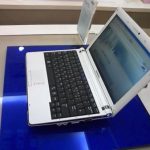
At first glance, today's netbook still looks like a laptop that spent a little too much time in the dryer. But after a few false starts and barely two years of serious evolution, netbooks have the first seriously unique market niche in hardware since laptops initially hit critical mass in the mid-'90s. And what's not to like about them? They're incredibly inexpensive, a lot easier on travellers' already overburdened shoulders and backs, and more than capable of handling the kind of routine work most of us churn through over the course of the average workday.
They're also ridiculously underpowered for anything beyond basic workflow like editing documents, managing e-mail, and accessing the Web. Their tiny, often laughably laid out keyboards make touch typing a fond memory. The small, low-resolution screens turn scrolling into a national sport -- which you'll probably want to avoid given the ergonomically frightening trackpads that are typically crammed wherever there's space. Battery capacity is lousy, too, often barely stretching beyond a couple of hours, if that much.
Earth to Europe: You won. Microsoft complied. Live with it.

A note of full disclosure first, to quell any dispute over which "side" I'm on: I've been a Windows user for 20 years. And today -- but perhaps not tomorrow -- my Web browser is Mozilla Firefox. Do I like Firefox? On days when it doesn't crash, yes. The moment someone else makes a more suitable Web browser than Firefox for my extremely heavy duty purposes, I will switch. I test the competition almost every day now, so I literally do mean the moment that happens.
The tying of Internet Explorer with Windows was a scheme by Microsoft to eliminate Netscape's market presence -- a devious, immoral, illegal, and effective scheme. Today, Netscape is nothing more than a flavor of an AOL Web portal page, a skin. No more damage can be done there. Does any technical reason remain for a Web browser to continue to be tied to, or bundled with, an operating system?
The DMCA is endangering American security

I've had the the government's 60-day Cyberspace Policy Review sitting on my desk for many days now, dutifully highlighted and marked up with notes about how this bit could turn out interesting and that section looks a lot like what we've previous heard from DC about cybersecurity and that passage over there appears to have been lifted from the questionable financial-loss statistics one hears from the RIAA and BSA and MPAA and such. And I see one gigantic self-inflicted wound that I fear the current administration will ignore like the last two have -- ignored it since 1998, in fact.
The cybersecurity review says we need to improve academic and industry collaboration on cybersecurity and other technology issues. It also states we should "expand university curricula; and set the conditions to create a competent workforce for the digital age."
The case for smaller, simpler, faster operating systems

Call me a shameless optimist, but I can't shake the feeling that the operating system arms race may finally be over. After countless generations of new-and-improved OSs that consumed every iota of additional performance built into ever-faster hardware, I think we're finally seeing a tiny light at end of a tunnel many of us thought would continue forever.
Newer, but not better
How long can Xbox 360, PlayStation 3 survive on life support?
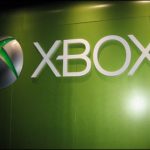
Your first car is as special as your first love. Whether you purchased it after years of working after-school jobs, or it was a graduation gift from thrilled parents, that otherwise soulless piece of machinery takes on the characteristics of a beloved pet. You name it, we dress it up, you let it become an inextricable part of our personality, and you have trouble letting them go. Even after the thing has become a leaky, noisy, smelly hazard to the health and safety of everyone around it, you still hold onto it for long after it should have been retired.
As we endure the Next Great Recession and are forced to make our possessions last longer, I wonder if the same sort of attachment will apply to home video game consoles.
Missing Steve Jobs: Absence makes the heart grow sadder
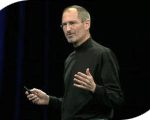
I've got a confession to make: I miss Steve Jobs.
Although I don't believe in worshipping at his altar alongside his legions of ardent fans, I can't deny that a Jobs keynote -- or anything he says, thinks or touches -- is more memorable simply because it came from him. While it's fair to say the vast majority of today's wonder-devices and services exist because of visionaries who had the guts to see beyond the here and now, it's also true that these very individuals have traditionally been quiet geniuses, content to drive their companies from behind a wall of corporate secrecy.
Does Bing have a future?
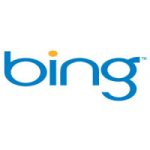
I've never been addicted to drugs, but watching Microsoft's seemingly never-ending drive to introduce a search engine that sticks helps me understand why the company simply can't say no.
First, the Redmond software giant's bread and butter, Windows and Office, are failing businesses. Although they're still hugely profitable, selling boxes of disc-based software is yesterday's business model. Microsoft needs to replace those revenue streams. Soon.
Why suing auditors won't solve the data breach epidemic

The life of a security auditor has its high points, of course -- travel, getting paid to break stuff, and more travel -- but there's a lot about that job that doesn't recommend it. You're going into someone else's place of business and trying to figure out what they're doing wrong, so you can write a big report that goes to their bosses? I don't care how personable you are, this isn't on the Dale Carnegie list of How To Win Friends.
Nor, in a disturbing number of situations, is it on the list of ways to Influence People. Take a pack of security auditors out for a beer sometime. (You will not have to ask twice, and if you get two beers in them they'll tell you about that mid-sized city whose network is end-to-end pwned right now and that international airport that has an ongoing problem with stolen IDs -- no names, of course, but plenty of other detail. After that, you'll want another beer just for yourself.) When they're done scaring you, they'll start trading tales of clients who simply refused to accept a bad audit.
Palm post-Pre: One handset won't cut it

This is the week we all root for the underdog.
I suspect I'm not the only one who's stood by and watched -- or winced -- as Palm stumbled ever further from the heights of nerd-worship it enjoyed a decade ago. I've cringed as a company that for a time seemed capable of doing no wrong instead spent more time reorganizing its corporate org chart while its iconic products gathered dust.
Five Vista perception problems Windows 7 must overcome
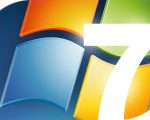
Poor Windows 7. Months before its official launch, it's already fighting to live down the reputation of its older siblings. It's bad enough it has to fight perceptions of insecurity (I'm looking at you, XP) and bloated incompatibility (Vista, anyone?). But like the poor kid entering a high school after his older brothers have spent years being serially suspended for misbehaviour and general hooliganism, Windows 7 has an uphill battle ahead of it. Whether the perceptions are earned or not is irrelevant. Undoing them is a monumental process either way, and it all rests on the shoulders of a kid whose only mistake seems to lie in carrying the family name.
But undo these perceptions it must. Windows 7 promises to be Microsoft's most crucial launch ever because the company's very future has never been in as much question as it is now. Its two cash cow franchises, Windows and Office, are mooing a little less deeply these days thanks to a seismic shift away from the traditional PC model. While Vista's problems are more perception than anything else, there's no escaping the cruel reality that the age of Windows-everywhere-by-default is over. As conventional desktop and laptop PCs give way to all sorts of new form factors running all sorts of new operating systems and connecting to the outside world in all sorts of unconventional ways, Microsoft can't afford another lukewarm Windows launch.
How soon will AOL become Google's prime competitor?

It's time to stop with all the "I told you so's" and the gloating and the self-congratulation, on the part of everyone (myself included) who never saw synergies between the former America Online and Time Warner, who are just as capable of reading the big, fluorescent handwriting on the wall as anyone else. We knew it wouldn't work. End of part one.
The task before Tim Armstrong -- minted as CEO of AOL in March -- and his team is to define the company. It has some very old parts and some very big assets, but other than that, it's a startup. If you "Google" Tim Armstrong (a number of ironies latent in that phrase), you discover almost instantly the type of independent CEO he will be. He helped build Google into the advertising sales giant it is today (its merger with DoubleClick notwithstanding), and he takes the knowledge of that blueprint with him to AOL. He is an ad man, and AOL will be an advertising platform.
Recent Headlines
Most Commented Stories
BetaNews, your source for breaking tech news, reviews, and in-depth reporting since 1998.
© 1998-2025 BetaNews, Inc. All Rights Reserved. About Us - Privacy Policy - Cookie Policy - Sitemap.
